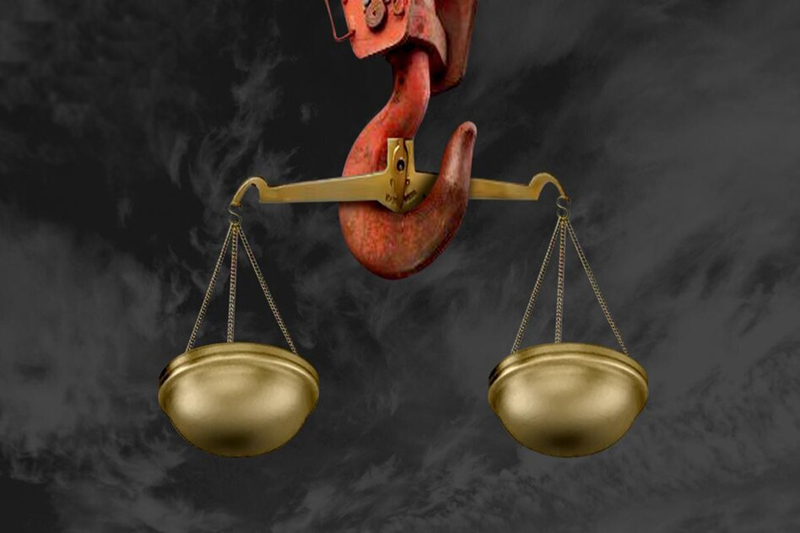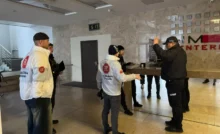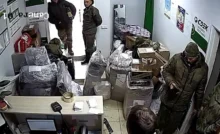Город князя Владимира: застройщики у ворот. На чьей стороне будет Фемида?


Уникальный национальный музей или очередной ЖК с многоэтажками?
Древнерусский город-крепость в более 75 гектаров с княжеским посадом, дорогами и въездной группой, сотни метров уникальных оборонительных укреплений времен средневековой Руси и несколько сотен курганных захоронений.
Это город-крепость, который построил еще князь Владимир для защиты Киева от кочевников. Город, в котором остановилось время после монгольского нашествия, но который сохранился до наших дней и который до сих пор не поглотила городская застройка. Это все о летописном городе Пересечень, расположенном на юге современного Киева в местности Китаев.
Но совсем скоро ситуация может измениться катастрофически и безвозвратно. Вместо полноценного археологического исследования памятника и создания уникального национального музея вскоре он может исчезнуть, а на этом месте появится очередной ЖК с многоэтажками, ведь участок сейчас находится под большим риском застройки. И пока Киевсовет возобновляет договоры аренды земли, столичные суды продолжают затягивать рассмотрение дел.
Какова ценность урочища Китаев, на каком этапе судебные дела и почему нужно следить за дальнейшей судьбой участка, объясняет движение «Честно».
Археологическая жемчужина
Сохранение урочища Китаев важно для столицы не только ввиду того, что это очередная большая зеленая зона в городе, которая рискует оказаться в руках застройщиков. Китаев — единственная сохранившаяся древнерусская средневековая крепость в пределах современной столицы, как отмечают ученые и активисты.
Историки неоднократно отмечали уникальность этой территории, ведь это древнерусский город, который в летописях упоминается как Пересечение. Этот город-крепость построили вместе с Вышгородом, Белгородом (Белогородка) и Василием (Васильков) во времена князя Владимира. Крепость в городе Пересечень выполняла крайне важную роль для усиления обороны Киева с юга.
Урочище состоит из огромной крепости, посада, 378 курганных могильников X-XI веков — таких не сохранилось даже на территории самого Киева, а также длинной системы пещер X-XII веков. Кроме этого, сохранился более километра оборонительных древнерусских укреплений, которых нет в столице, а также древнерусские дороги, что, по словам археологов, является чрезвычайной редкостью.
По данным историков, в этой местности в свое время проживали и украинские культурные деятели, среди которых Елена Пчилка, Григорий Сковорода, Тарас Шевченко, Леся Украинка, Михаил Драгоманов и многие другие.
Поэтому в перспективе территория Китаевского археологического комплекса могла бы служить площадкой для создания отдельного археологического музея или полноценного парка, что является распространенной практикой на территории Европы.
Но пока этот комплекс может застроить компания KAN Development, основателем которой является бывший заместитель городского головы столицы Виталия Кличко предприниматель Игорь Никонов.
Хронология событий
Заповедный Китаев снова оказался в фокусе общественного обсуждения весной 2024 года. Тогда появилась петиция с комплексным требованием относительно земельных участков в трех урочищах, расположенных рядом — Китаев, Болгарское и Самбурки. Общественность требовала защитить территорию Китаевского археологического комплекса от застройки, прекратить договоры аренды на указанные земельные участки и вернуть их в государственную собственность. Менее чем за месяц петиция собрала 8692 подписи, однако Киевсовет ее не поддержал.
Несколькими днями позже на сайте Киевсовета появились проекты решений о возобновлении договоров аренды с ЧАО «Киевская овощная фабрика» на двух земельных участках в Китаеве площадью 4,82 га и 21,61 га. Относительно обеих территорий продолжались судебные слушания, что стало основным аргументом для снятия соответствующих инициатив (№ 691 и № 695) с повестки дня заседания комиссии Киевсовета по сохранению культурного наследия столицы.
Зато депутат фракции «Единства» и председатель комиссии Ярослав Федоренко предложил создать совместную рабочую группу с земельной комиссией для дальнейшего контроля и исследования данных дел.
Однако уже 4 июля Китаевский археологический комплекс снова оказался под риском застройки: Киевсовет принял решение о продлении трех договоров аренды в урочищах Самбурки и Болгарское. Не остановили депутатов ни протесты, продолжавшиеся под зданием КГГА, ни возмущение археологов и общественных активистов в социальных сетях.
В одном из предыдущих материалов «Честно» подробно рассмотрел ход скандального голосования, в рамках которого Киевсовет принял сразу несколько застроек, которые могут навредить ландшафту города и сохранению архитектурного наследия.
Сейчас прошло более месяца с момента голосования, и волна общественного возмущения успела заметно уменьшиться. В то же время ситуацию с урочищами нельзя упускать из виду, и вот почему. Сейчас Киевсовет никак публично не отреагировал относительно принятых скандальных решений о возобновлении договоров аренды в урочищах Самбурки и Болгарское, несмотря на то, что общественные активисты регистрировали соответствующие петиции и обращались в городскую прокуратуру.
Однако речь идет лишь о трех участках из пяти, расположенных вблизи Китаевского монастыря и которые СМИ обобщенно именуют «Китаев». Зато два других участка, как было отмечено ранее, являются предметом судебного спора — и динамика здесь также пока неутешительная.
На участке урочища Китаев проведут комплексную судебную экспертизу, в рамках которой должны установить, относится ли к этой территории памятник археологии, а также имеются ли на участке предметы и объекты археологического значения.
Таким образом Северный апелляционный хозяйственный суд удовлетворил просьбу текущего арендатора участка — ЧАО «Киевская овощная фабрика». В то же время просьба Офиса генерального прокурора о выезде судебной коллегии на территорию урочища Китаев была отклонена. Таковы итоги судебных заседаний, состоявшихся по делу одного из участков урочища Китаев в конце июля.
Ход судебных дел
Когда речь идет о земельных участках в урочище Китаев и судах, имеются в виду два судебных дела, которые были начаты по иску Офиса генерального прокурора в сентябре 2023 года.
Два, поскольку спорными являются два земельных участка, площадью 21,61 га и 4,82 га (судебные дела №910/14450/23 и № 910/14549/23 соответственно)
Фактически иск генпрокурора требует отменить решение Киевсовета от 29 ноября 2007 года, согласно которому участки были предоставлены в аренду ЧАО «Киевская овощная фабрика», и лишить город права распоряжения ими. Главный аргумент — территория, на которой размещено археологическое наследие, является государственной собственностью. То есть Киевсовет не имел права заключать никаких договоров и предоставлять участок в аренду, ведь Китаевское городище и курганный могильник действительно занесены в перечень памятников культурного наследия национального значения.
Таким образом, сторону истца олицетворяет Офис генеральной прокуратуры, Министерство культуры и КГГА, а ответчика — Киевсовет и арендатор «Киевская овощная фабрика». Слушания дел в судах первой инстанции состоялись еще зимой: в обоих случаях судьи приняли решение об отказе в удовлетворении иска генпрокурора.
Уже в апелляционном суде заседание по делу участка размером более 21 га состоялось 21 мая. По его итогам назначили комплексную судебную экспертизу, которая должна определить, попадает ли земельный участок в границы памятника археологии и имеются ли на нем объекты памятника археологии. Соответственно, на время реализации экспертизы все производства по делу прекращаются.
Несколькими днями позже заместитель генерального прокурора подал жалобу в Верховный суд с просьбой отменить это решение и повторно передать дело на рассмотрение Северного апелляционного хозяйственного суда. Однако Верховный суд отказал, и все имеющиеся решения остались в силе.
«Это же было уже»
Рассмотрение судебного дела по меньшему участку в урочище Китаев затянулось, и заседание в апелляции состоялось только 17 июля. Тогда предметом обсуждения были два ходатайства сторон: Офис генпрокурора выразил просьбу провести выездное заседание судебной коллегии, а арендатор требовал провести (очередную) комплексную судебную экспертизу — идентичную той, которая должна быть проведена на участке площадью 21 га.
Выездное заседание было предложено для того, чтобы судебная коллегия осмотрела вещественное доказательство наличия археологического памятника и воочию убедилась, что на участке действительно присутствуют объекты археологии. Сторона арендатора ожидаемо выступила против: «Я, конечно, не большой специалист, но считаю, что археология — это, наверное, что-то под землей. Что можно осматривать под землей? Как можно визуально осмотреть под землей? Мы возражаем этому ходатайству», — отметил на судебном заседании представитель ЧАО «Киевская овощная фабрика».
Правда, в случае с урочищем Китаев, ничего осматривать под землей и не пришлось бы — археологические памятники заметны буквально на поверхности, о чем неоднократно говорили СМИ. Кроме того, среди доказательств дел фигурируют научные отчеты, подтверждающие наличие культурного слоя на земельных участках и подчеркивающие их расположение в пределах Китаевского исторического ареала.
Инициативная группа «Защитим Китаев» в комментарии «Честно» отметила: «Нет ни смысла, ни логики, ни оснований, чтобы назначать судебную экспертизу. Суд имеет возможность рассмотреть дело без назначения экспертизы. По нашему мнению, назначение экспертизы приведет к затягиванию рассмотрения дела, которое и так уже происходит более восьми месяцев».
То, что в материалах дела достаточно документов и доказательств, подтверждающих наличие памятника археологии, подчеркивал и генеральный прокурор. Однако этого оказалось недостаточно — судьи отклонили просьбу об осуществлении выезда на участок. Вместо этого коллегия назначила проведение судебной экспертизы «с целью полного и всестороннего рассмотрения данного дела».
Как ни странно, судебная экспертиза ставит перед собой ту же цель, что и в деле относительно другого участка урочища — установить, накладывается ли его территория на памятник археологии и имеются ли на нем объекты археологического значения. Так же, как и с другим участком, все производства приостанавливаются на период проведения указанной экспертизы.
Сейчас дела по урочищу Китаев оказались в тупике — на обоих участках назначены судебные экспертизы, хотя были предоставлены все необходимые доказательства и основания для того, чтобы беспрепятственно продолжать решение судебных споров. Зато это создает риск не только затягивания рассмотрения дела, но и уменьшения общественного внимания к дальнейшему ходу судов.
Общественный контроль и включенность неоднократно подтверждали свою эффективность на практике, особенно в контексте Киева, поэтому и сейчас сохранение Китаевского археологического комплекса не должно стать исключением.
Recent Posts
Киевские правоохранители раскрыли повторную деятельность мошеннического инвестиционного колл-центра в «FIM Центр»
Команда СтопКора снова зафиксировала возможную мошенническую деятельность в бизнес-центре "FIM Центр" по улице Линейной, 17…
Прокуратура расследует хищение почти 2 млн грн чиновниками КО «Киевмедспецтранс»
В Киеве доложено о подозрении заместителю директора коммунального объединения "Киевмедспецтранс" в завладении бюджетными средствами, выделенными на закупку…
Подозреваемый в мародерстве оккупант оправдан украинским судом
Российского военнослужащего, которого подозревали в ограблении дома жительницы села Блиставица Бучанского района Киевской области, признали…
На закупке дронов для ВСУ в Сумской области украдено почти 16 миллионов гривен
Сумской области группа, которая, по данным следствия, была организована действующим военнослужащим. Ему грозит до 12…
Саркози жалуется на проблемы с питанием в тюремной камере
Находящийся в парижской тюрьме Сантэ экс-президент Франции Николя Саркози отказывается есть местную еду. Об этом,…
Семейные связи в действии, глава ВРП Усик устраивает сына в судьи
Председатель Высшего совета правосудия Григорий Усик помогает своему сыну Максиму Усику – бывшему прокурору и…

